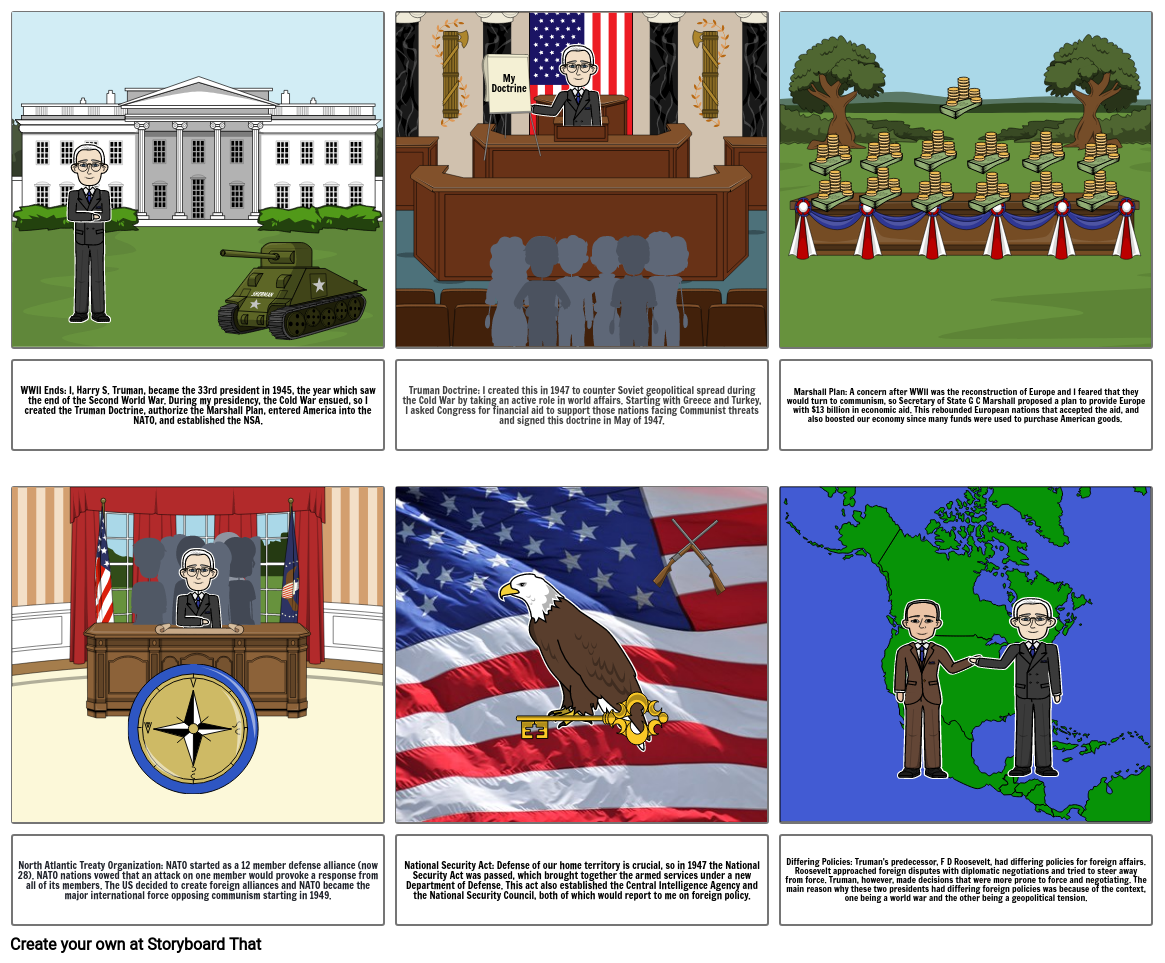cold war

Storyboard Text
- My Doctrine
- WWII Ends: I, Harry S. Truman, became the 33rd president in 1945, the year which saw the end of the Second World War. During my presidency, the Cold War ensued, so I created the Truman Doctrine, authorize the Marshall Plan, entered America into the NATO, and established the NSA.
- Truman Doctrine: I created this in 1947 to counter Soviet geopolitical spread during the Cold War by taking an active role in world affairs. Starting with Greece and Turkey, I asked Congress for financial aid to support those nations facing Communist threats and signed this doctrine in May of 1947.
- Marshall Plan: A concern after WWII was the reconstruction of Europe and I feared that they would turn to communism, so Secretary of State G C Marshall proposed a plan to provide Europe with $13 billion in economic aid. This rebounded European nations that accepted the aid, and also boosted our economy since many funds were used to purchase American goods.
- North Atlantic Treaty Organization: NATO started as a 12 member defense alliance (now 28). NATO nations vowed that an attack on one member would provoke a response from all of its members. The US decided to create foreign alliances and NATO became the major international force opposing communism starting in 1949.
- National Security Act: Defense of our home territory is crucial, so in 1947 the National Security Act was passed, which brought together the armed services under a new Department of Defense. This act also established the Central Intelligence Agency and the National Security Council, both of which would report to me on foreign policy.
- Differing Policies: Truman's predecessor, F D Roosevelt, had differing policies for foreign affairs. Roosevelt approached foreign disputes with diplomatic negotiations and tried to steer away from force. Truman, however, made decisions that were more prone to force and negotiating. The main reason why these two presidents had differing foreign policies was because of the context, one being a world war and the other being a geopolitical tension.
Over 30 Million Storyboards Created

